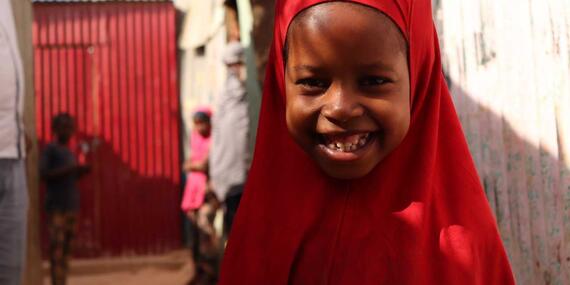Today's top news: Somalia, Syria, Tropical Storm Freddy, Mongolia

Somalia
Fighting in the city of Laas Caanood in Sool Region is entering its fifth week. According to local authorities, more than 200,000 people having fled their homes, at least 80 people died and hundreds have been injured, according to OHCHR.
All the 39 schools in Laas Caanood have closed, as well as 12 other schools outside the town. More than 25,000 school aged children have been affected as a result.
Commodity prices are rising due to disruptions in transport. Nearly 214,000 people in Sool Region, 43 per cent of the population, are currently experiencing crisis or worse levels of acute food insecurity.
Humanitarian workers continue to step up the response in the areas they can access. The Humanitarian Coordinator, Adam Abdelmoula, has released $2 million from the Somalia Humanitarian Fund (SHF) for life-saving interventions.
Priority needs include food, shelter, medical supplies, and clean water.
Syria
OCHA continues to scale up the response to earthquake-affected areas across Syria, where at least 8.8 million people have been affected.
Today, 34 truckloads of aid from the International Organization for Migration, the UN Refugee Agency, the World Health Organization and the World Food Programme crossed into northwest Syria. Since 9 February, 617 trucks have crossed the three border crossings.
So far, the UN has also completed 19 cross-border missions to northwest Syria since the first interagency visit to Idleb on 14 February. Yesterday, a UN delegation comprising representatives from the OCHA, UNICEF, WHO, UNFPA and IOM met with local authorities at the Bab al-Salama border crossing to discuss the most prominent needs in the area. They also visited the town of Jandairis to conduct water, sanitation and hygiene and health assessments for the newly established reception and collective centers.
Tropical Storm Freddy
On 5 March, Tropical Cyclone Freddy approached the south-western coast of Madagascar. Although it did not make landfall, it brought heavy rains to the city of Toliara and surrounding areas, which have left at least four people dead, more than 13,000 people displaced, and 3,800 houses flooded or damaged.
This follows Freddy’s first landfall on the eastern coast of Madagascar on 21 February, which affected at least 226,000 people. Of these people, some 148,000 are in need of humanitarian assistance, according to the Government and humanitarian partners.
OCHA is working with partners and authorities to help affected people in the south-western areas of Madagascar. UNICEF is helping to open temporary accommodation sites and providing materials for the to supply drinking water, vaccines and food for malnourished children. The World Food Programme is providing food.
In the south-eastern part of the country, OCHA and its partners are continuing to assist those hit by Freddy’s first landfall. At least 74,000 people are receiving food assistance, shelter and kitchen kits for 13,000 households have been distributed, and about over 4,000 women and girls have received dignity kits.
In the days ahead, we will be closely watching Mozambique, where Freddy is due to make a second landfall later in the week as a Tropical Cyclone.
Mongolia
The UN and humanitarian partners are appealing for an additional $3.5 million to support national efforts to prevent the country’s humanitarian situation from getting worse.
A new response plan released today aims to reach some 53,000 people in communities hardest hit by extreme weather over the past year. These people have been affected by Dzud (ZUHD), a severe winter weather phenomenon unique to Mongolia that follows a summer drought. It leads to large numbers of livestock either starving or freezing to death.
Since October, UN agencies and NGOs in the country have been working with the Government on the early response. About $1.7 million in funding has been received since the start of this year.
The UN Resident Coordinator for Mongolia, Tapan Mishra, called for constant monitoring of the situation and broad humanitarian assistance to prevent a major catastrophe.
